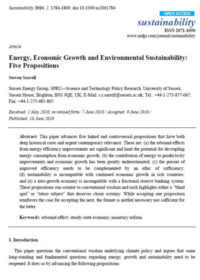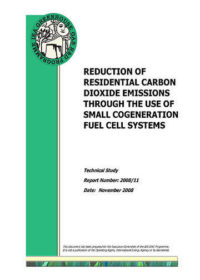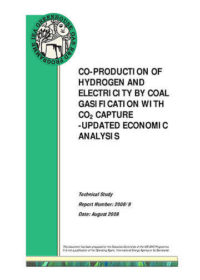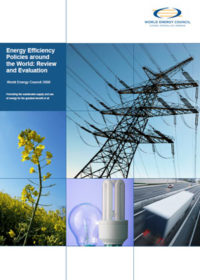Resources
Publications
Our publications, reports and research library hosts over 500 specialist reports and research papers on all topics associated with CCS.
View our Publication Library Disclaimer.
Filter by
Energy, economic growth and environmental sustainability: five propositions
18th June 2010
Topic(s): Economics, Energy efficiency
This paper advances five linked and controversial propositions that have both deep historical roots and urgent contemporary relevance. These are: (a) the rebound effects from energy efficiency improvements are significant and limit the potential for decoupling energy consumption from economic growth; (b) the contribution of energy to productivity improvements and economic growth has been greatly underestimated; (c) the pursuit of improved efficiency needs to be complemented by an ethic of sufficiency; (d) sustainability is incompatible with continued economic growth in rich countries; and (e) a zero-growth economy is incompatible with a fractional reserve banking system. These propositions run counter to conventional wisdom and each highlights either a - blind spot‖ or - taboo subject‖ that deserves closer scrutiny. While accepting one proposition reinforces the case for accepting the next, the former is neither necessary nor sufficient for the latter.
Disclaimer
The content within the Global CCS Institute Publications, Reports and Research Library is provided for information purposes only. We make every effort and take reasonable care to keep the content of this section up-to-date and error-free. However, we make no claim as to its accuracy, currency or reliability.
Content and material featured within this section of our website includes reports and research published by third parties. The content and material may include opinions and recommendations of third parties that do not reflect those held by the Global CCS Institute.
Disclaimer
The content within the Global CCS Institute Publications, Reports and Research Library is provided for information purposes only. We make every effort and take reasonable care to keep the content of this section up-to-date and error-free. However, we make no claim as to its accuracy, currency or reliability.
Content and material featured within this section of our website includes reports and research published by third parties. The content and material may include opinions and recommendations of third parties that do not reflect those held by the Global CCS Institute.
Scenarios on the introduction of CO2 emission performance standards for the EU power sector
1st January 2009
Topic(s): Energy efficiency, Policy law and regulation
In this paper, the introduction of Emission Performance Standards (EPS) as a means for po-tential emission reductions in the European power sector was assessed. EPS in the power sec-tor can already be found in California, USA, since 2007 as well as in the US states of Oregon, Washington and Montana, which introduced EPS schemes following the example of Califonia.
Disclaimer
The content within the Global CCS Institute Publications, Reports and Research Library is provided for information purposes only. We make every effort and take reasonable care to keep the content of this section up-to-date and error-free. However, we make no claim as to its accuracy, currency or reliability.
Content and material featured within this section of our website includes reports and research published by third parties. The content and material may include opinions and recommendations of third parties that do not reflect those held by the Global CCS Institute.
Reduction of residential carbon dioxide emissions through the use of small cogeneration fuel cell systems
11th November 2008
Topic(s): Energy efficiency, Fuel switching
Combined heat and power systems (CHP) enable users to operate with increased overall efficiency thus reducing consumption of fossil fuels and green house gas emissions. This study investigates the potential of fuel cell based CHP systems in domestic and small commercial applications to reduce green house gas emissions. Fuel cells in this application have advantages of very low emissions and potentially higher power to heat ratios than other CHP systems.
Disclaimer
The content within the Global CCS Institute Publications, Reports and Research Library is provided for information purposes only. We make every effort and take reasonable care to keep the content of this section up-to-date and error-free. However, we make no claim as to its accuracy, currency or reliability.
Content and material featured within this section of our website includes reports and research published by third parties. The content and material may include opinions and recommendations of third parties that do not reflect those held by the Global CCS Institute.
Co-production of hydrogen and electricity by coal gasification with CO2 capture: updated economic analysis
27th August 2008
Topic(s): Carbon capture use and storage (CCUS), CO2 capture, Energy efficiency
IEA GHG has published a report on co-production of hydrogen and electricity with CO2 capture in September 2007. In the time since the cost estimates in that report were prepared there have been large increases in coal prices and plant construction costs. Foster Wheeler Italiana, who undertook the original co-production study, has produced updated cost estimates taking account of these changes. This work was requested and funded by the Netherlands General Energy Council and managed by IEA GHG.
Disclaimer
The content within the Global CCS Institute Publications, Reports and Research Library is provided for information purposes only. We make every effort and take reasonable care to keep the content of this section up-to-date and error-free. However, we make no claim as to its accuracy, currency or reliability.
Content and material featured within this section of our website includes reports and research published by third parties. The content and material may include opinions and recommendations of third parties that do not reflect those held by the Global CCS Institute.
Energy efficiency policies around the world: review and evaluation
28th January 2008
Topic(s): Energy efficiency, Policy law and regulation
This report presents results from a joint project and three year study facilitated by the World Energy Council and ADEME (French Environment and Energy Management Agency). Findings include the main long-term drivers of energy efficiency policies are; security of energy supply, efficiency of national economies, environmental concerns, including global warming and, in developing countries, investment constraints on the energy supply side.
Disclaimer
The content within the Global CCS Institute Publications, Reports and Research Library is provided for information purposes only. We make every effort and take reasonable care to keep the content of this section up-to-date and error-free. However, we make no claim as to its accuracy, currency or reliability.
Content and material featured within this section of our website includes reports and research published by third parties. The content and material may include opinions and recommendations of third parties that do not reflect those held by the Global CCS Institute.
This report assess the available technology for power generation from renewables and efficiency increases leads the author to conclude that a low-carbon future lies just round the corner.
Disclaimer
The content within the Global CCS Institute Publications, Reports and Research Library is provided for information purposes only. We make every effort and take reasonable care to keep the content of this section up-to-date and error-free. However, we make no claim as to its accuracy, currency or reliability.
Content and material featured within this section of our website includes reports and research published by third parties. The content and material may include opinions and recommendations of third parties that do not reflect those held by the Global CCS Institute.






